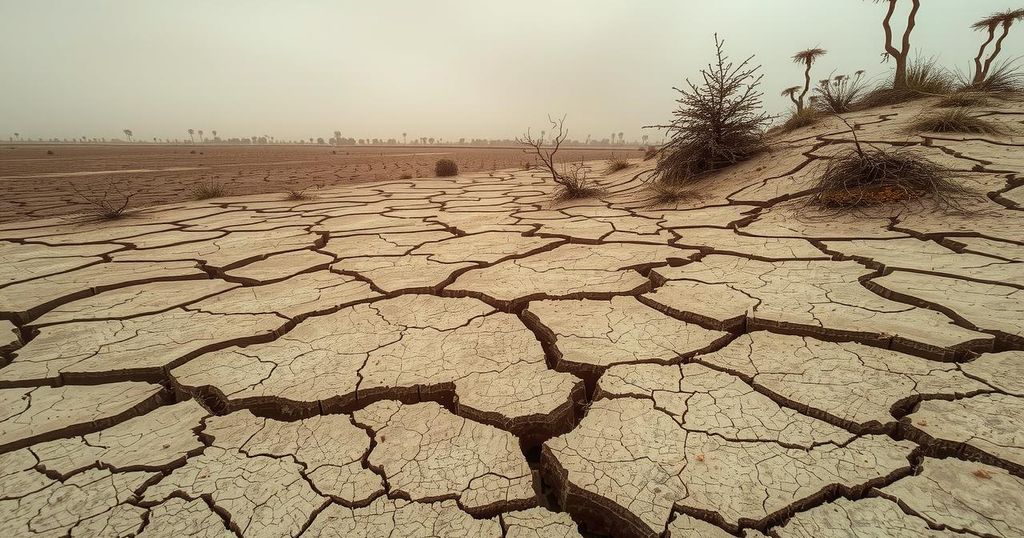South Africa’s Water Crisis: A Challenge of Mismanagement and Urgency

South Africa is in the midst of a severe water crisis characterized by significant mismanagement and infrastructure failures. The situation affects daily life and industries, particularly in urban areas like Johannesburg. Key figures, including John Steenhuisen, highlight the urgent need for reform and collaboration with the private sector to address water supply issues effectively. Historical corruption has exacerbated the crisis, necessitating immediate action to ensure clean water access for all citizens.
South Africa is currently experiencing a significant water crisis, deeply affecting both daily living and various industries. Renowned journalist Justice Malala illustrated the severity of this issue after a visit to Hammanskraal, where he noted the consequences of inadequate water treatment amid a cholera outbreak that resulted in twenty fatalities. The local populace has resorted to alternative methods for securing clean water due to the lack of municipal assistance, often carrying substantial canisters instead of using shopping trolleys.
As of March 21, 2025, Johannesburg faces critical water supply issues, with supply interruptions extending up to 86 hours. This situation poses a serious challenge for households attempting to meet essential needs and for industries such as automobile manufacturing and food processing that rely on consistent water supply.
John Steenhuisen, leader of the Democratic Alliance, attributed the water shortages to prolonged mismanagement and inadequate investment over the years. He observed that, despite full dams and reservoirs in Gauteng, residents experience persistent dry taps. Steenhuisen indicated that these warnings reflect deep-rooted failures in municipal governance concerning water management.
Steenhuisen also criticized the municipal authorities for their inability to maintain vital infrastructure, noting the tendency to prioritize visible projects over necessary underground replacements. He emphasized the dangers of neglecting critical water, electricity, and sanitation services, which lead to severe deficiencies in water management across municipalities.
Each person in South Africa consumes an average of 237 liters of water daily, well above the global average of 173 liters. Compounding the crisis is the lack of effective water treatment and recycling systems, exacerbated by aging infrastructure that causes approximately 35% leakage rates in Gauteng. Former Minister of Water and Sanitation, Senzo Muchunu, emphasized the urgent need for improvements and called for municipalities to address these leaks to optimize water availability.
The roots of South Africa’s water crisis can be traced back to decisions made during prior administrations, notably under former President Jacob Zuma from 2009 to 2018. This period was marked by rampant corruption, which often led to improper fund allocations and ineffective infrastructure projects. An anonymous finance ministry official revealed a concerning connection between political practices and local maintenance contracts undermining service delivery.
Muchunu mentioned the emergence of a so-called “water mafia,” which reflects a more complex set of challenges facing local governments. These groups reportedly sabotage water lines only to charge residents for tanker truck deliveries of clean water. A businessman involved in water resource management highlighted this emerging crisis by explaining the tactics employed by these entities to exploit the situation.
The South African government is now contemplating solutions involving private sector integration to improve water delivery systems. The proposed National Water Resources Infrastructure Agency aims to enhance oversight and facilitate private investment in water resource management. Steenhuisen outlined the necessity of involving private entities while ensuring that a portion of generated revenue is allocated for essential maintenance.
Past collaborations between the government and private sector in energy have shown promise and may present a model for the water sector. Muchunu pointed out the urgent demand for water within communities, underlining the need for immediate action to prevent further hardships.
Addressing the pervasive dysfunction within South Africa’s water management system is vital for restoring public trust and guaranteeing that all citizens have access to potable water. The actions taken today will indelibly influence the future framework of water governance in South Africa, potentially shaping the landscape for generations to come.
In conclusion, South Africa’s water crisis demands urgent attention due to years of mismanagement and infrastructure neglect. The challenges faced by municipalities, exacerbated by corruption and a growing water mafia, underline the critical need for comprehensive reforms. Collaboration with the private sector may offer a pathway to sustainable improvements in water delivery systems. Effective measures must be implemented promptly to ensure equitable access to clean water for all citizens, thereby restoring public confidence in governance and water management.
Original Source: evrimagaci.org






